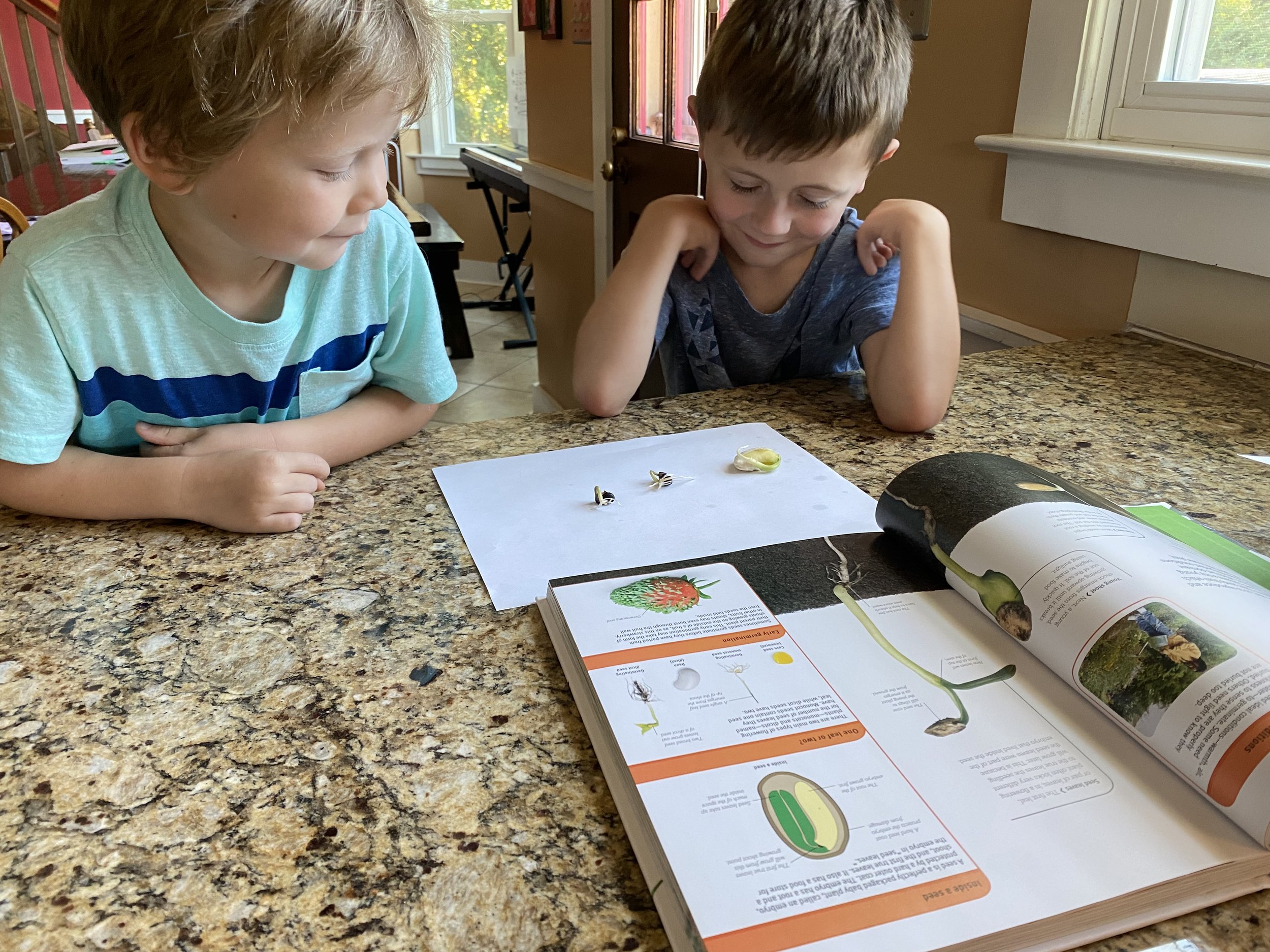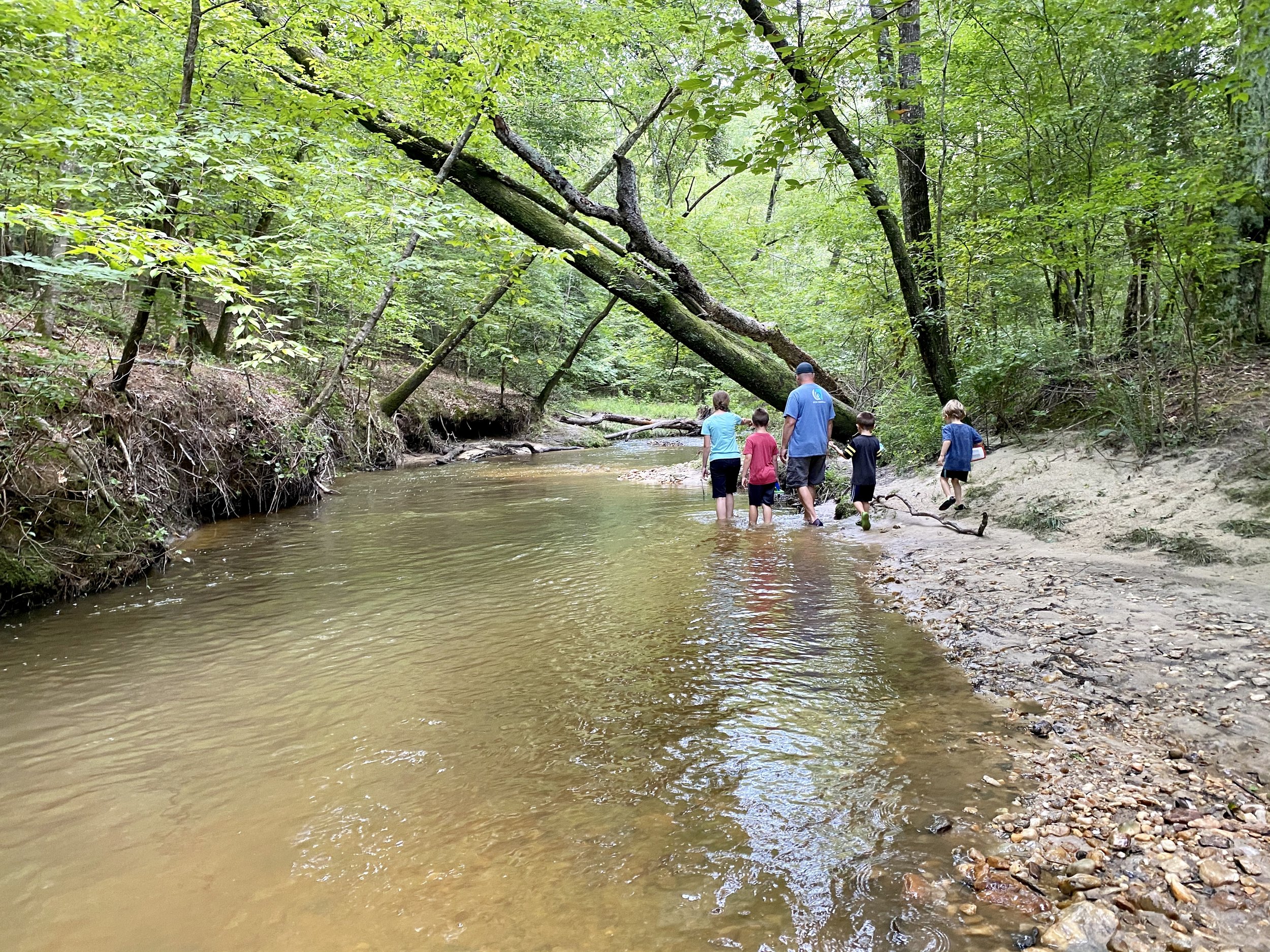
Charlotte Mason Homeschooling
The Charlotte Mason Education Philosophy
Who is Charlotte Mason?
Charlotte Mason (1842-1923) was a Christian woman and British educator. When she was 49, she moved to Ambleside, England and established a house of education. She had a brilliant philosophy of education. Charlotte realized the importance of seeing and treating children as individual persons; people with their own ideas and personality. Charlotte Mason has inspired many educators and homeschools around the world. Charlotte believed that children naturally loved learning. She facilitated this by creating a positive learning atmosphere. Children are hungry and should be fed the best ideas.
Charlotte Mason Education Philosophy:
Charlotte Mason’s philosophy had a strong Christian base. All things were tied to the truth of God’s Word. She believed that education had three components: atmosphere, discipline, and life. Atmosphere refers to where the children grow up: a child absorbs a great deal from their home environment. Discipline in education refers to developing a discipline of good habits: habits of character and integrity. And life refers to academic work. However, rather than just giving facts and information, Charlotte believed in giving living thoughts and ideas.
She taught handwriting and spelling by using passages from great books that communicate great ideas rather than using just a list of words. She encouraged spending time outdoors, interacting with God’s creation firsthand and learning the living ways of nature. She introduced the work of great artists and composers to her students and let them spend time with each, getting to know their works personally.
(https://simplycharlottemason.com/what-is-the-charlotte-mason-method/)
A child’s education truly begins when he acquires the habit of reading to himself, with interest and pleasure. Charlotte Mason understood that knowing parrot type lists of facts isn’t education. She satisfied the minds of the children with substantial, interesting, well-written material they can think about. Modern education tends to belittle children intellectually. Charlotte Mason lessons are structures and fitted to the child’s needs. Each step is mastered before the next step is taken. Things are taught when they are ready. At their level and speed.
Living Books and Narration:
Charlotte coined the phrase “living books” to describe books that spark the imagination of the child through subject matter. She emphasized reading high quality and well-chosen literature.
Charlotte’s students used living books rather than dry textbooks. Living books are usually written in narrative or story form by one author who has a passion for his topic. A living book makes the subject “come alive.”
The students were required to tell back, or narrate, in their own words what was read in the living book, in order to secure it in their minds. No fill-in-the-blank or multiple-choice for them; they practiced using rich language as they pointed out the ideas they gleaned from the reading and any mental connections they made between it and other ideas already residing in their growing minds and hearts.
(https://simplycharlottemason.com/what-is-the-charlotte-mason-method/)
With the narration method, the child tells back what they heard in their own words. When they do this, they think for themselves. The child uses their memory and attends deeply, using their own reactions and expressions. We don’t have to reduce the child’s appreciation to elementary true/false tests. The child has acquired knowledge, and after expressing it creatively in their own words, they will remember what they have learned.
Here is a picture that my six-year old drew after reading a book about Pompeii. He was not told to make an illustration or even do a response. This is just a curious brain at work! There is an enjoyment to learning through books and stories. I even love the one word he added - “suddenly.” The idea of people just going about life and then the fact that “suddenly a volcano erupted” really captured his attention.
Some days my kitchen table/homeschool table is chaos. But it is beautiful. There is beauty in the chaos. The kids get excited about multiple things and we get carried away. Here you can see a few books about trees. My six-year old was at it again! He went out to the woods and started finding tree bark samples to compare to the examples in the book. Then he started writing notes about the various types of trees and tree bark.
THIS is learning. This is allowing the children to learn in a fun and fluid way. Rather than sitting at a desk with a dull and un-engaging science text book, the science comes to life. It is real.
Here we were learning about seeds, germination, roots, etc. What better way than sprout a few of our own beans?
And we had so much fun watching them grow for a few weeks.
Exploring nature is one of the best ways to have fun and learn with your children. One of our favorite parts about the Charlotte Mason style of homeschooling is the emphasis placed on exploring and playing outside in God’s creation.
Children need freedom to imagine, create, make messes, burn energy, use tools, build a fire, and even play with a knife or ax. It is good for them. They learn how to be safe. They are able to learn boundaries in a tangible way.
Below is a gallery of images from our adventures to illustrate the freedom and joy of the adventures of learning the Charlotte Mason way.

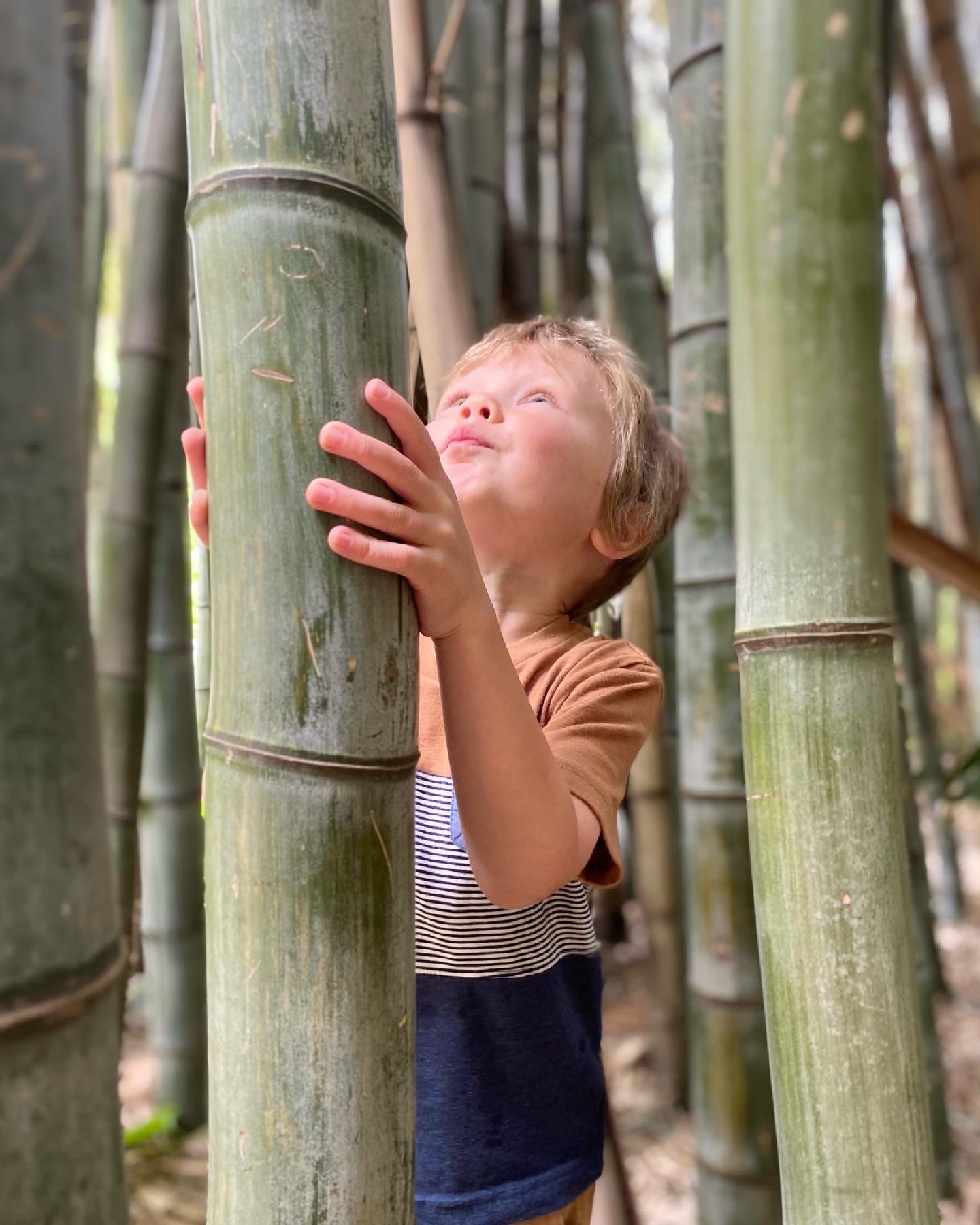


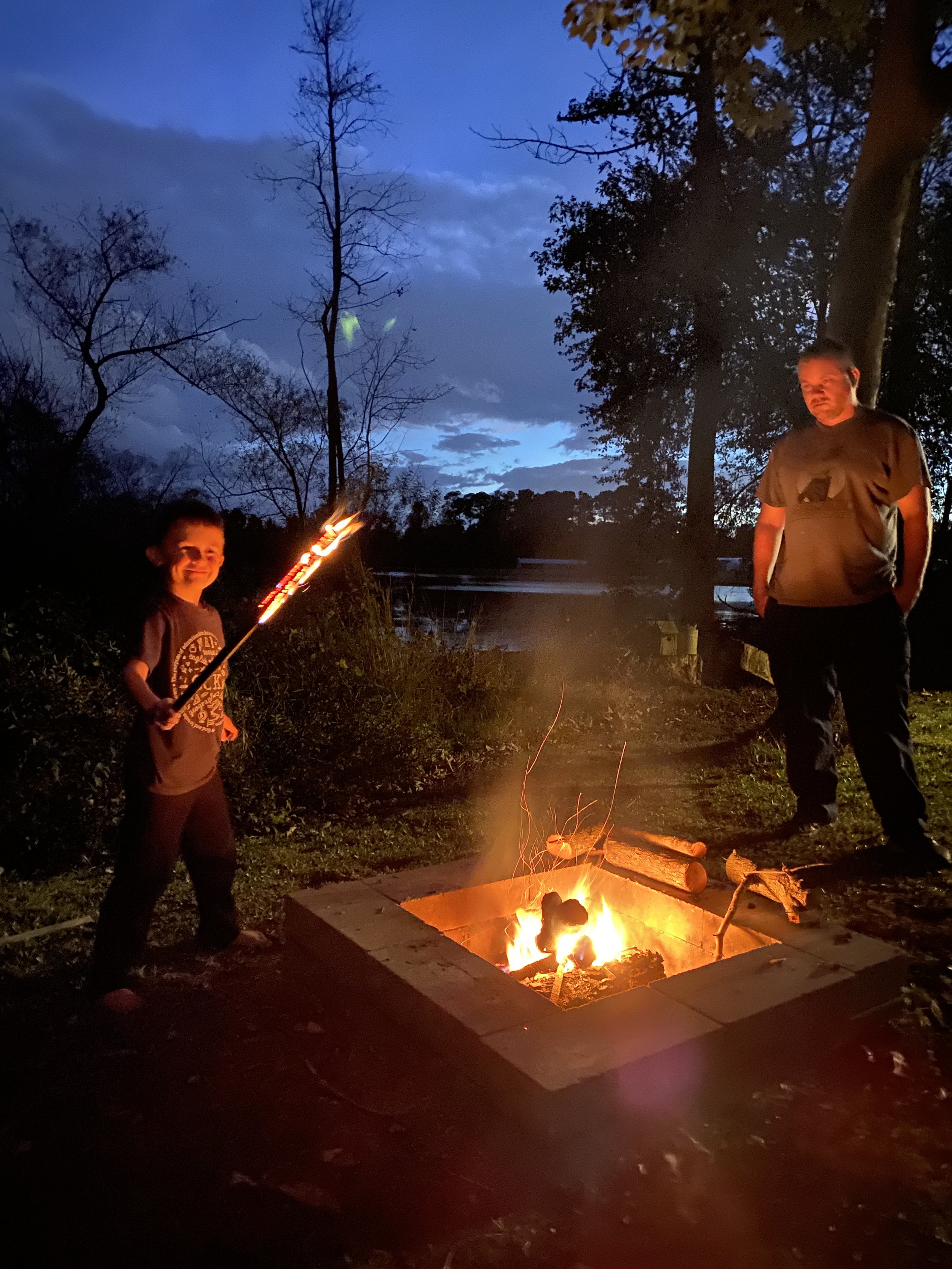
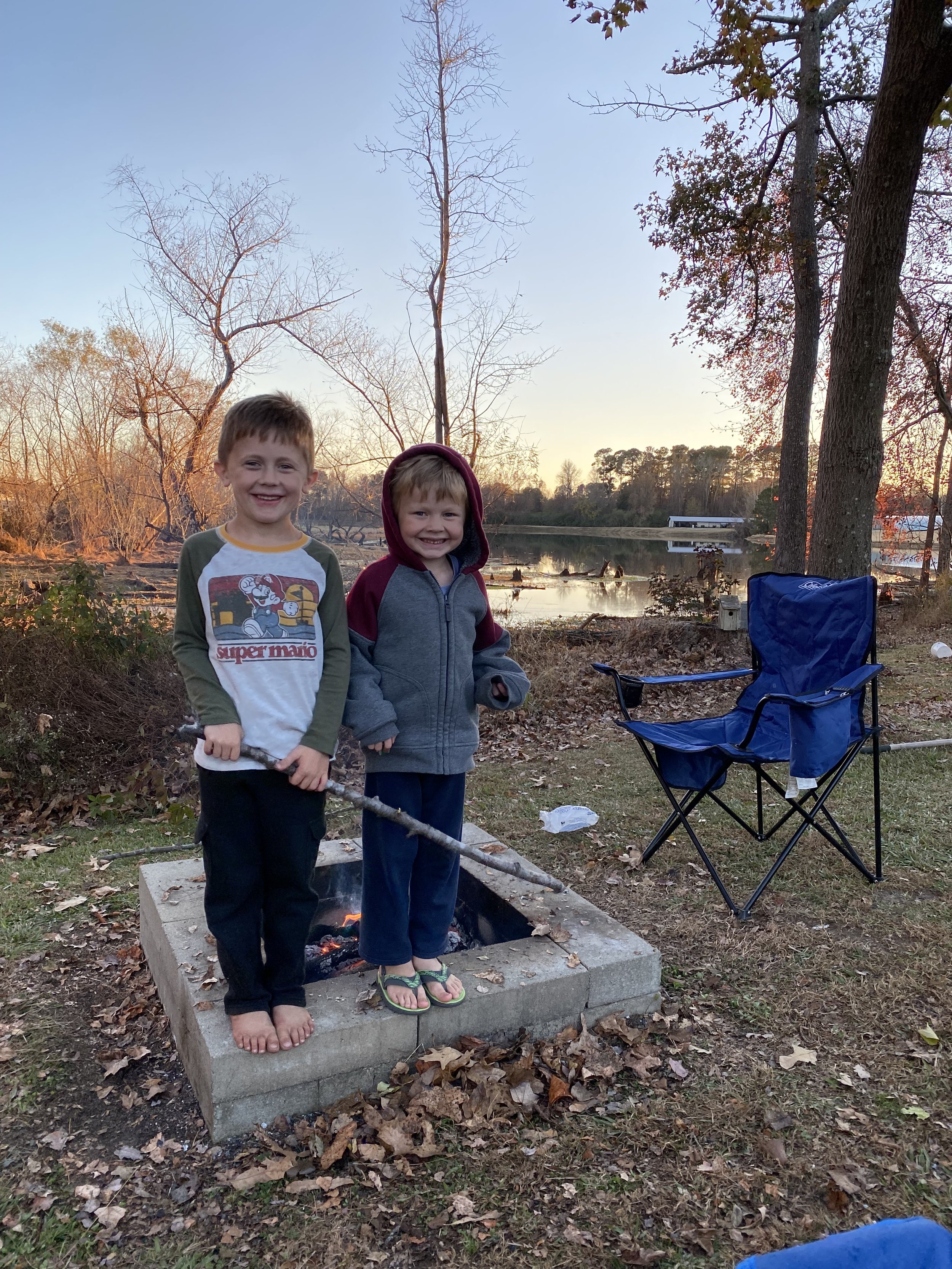
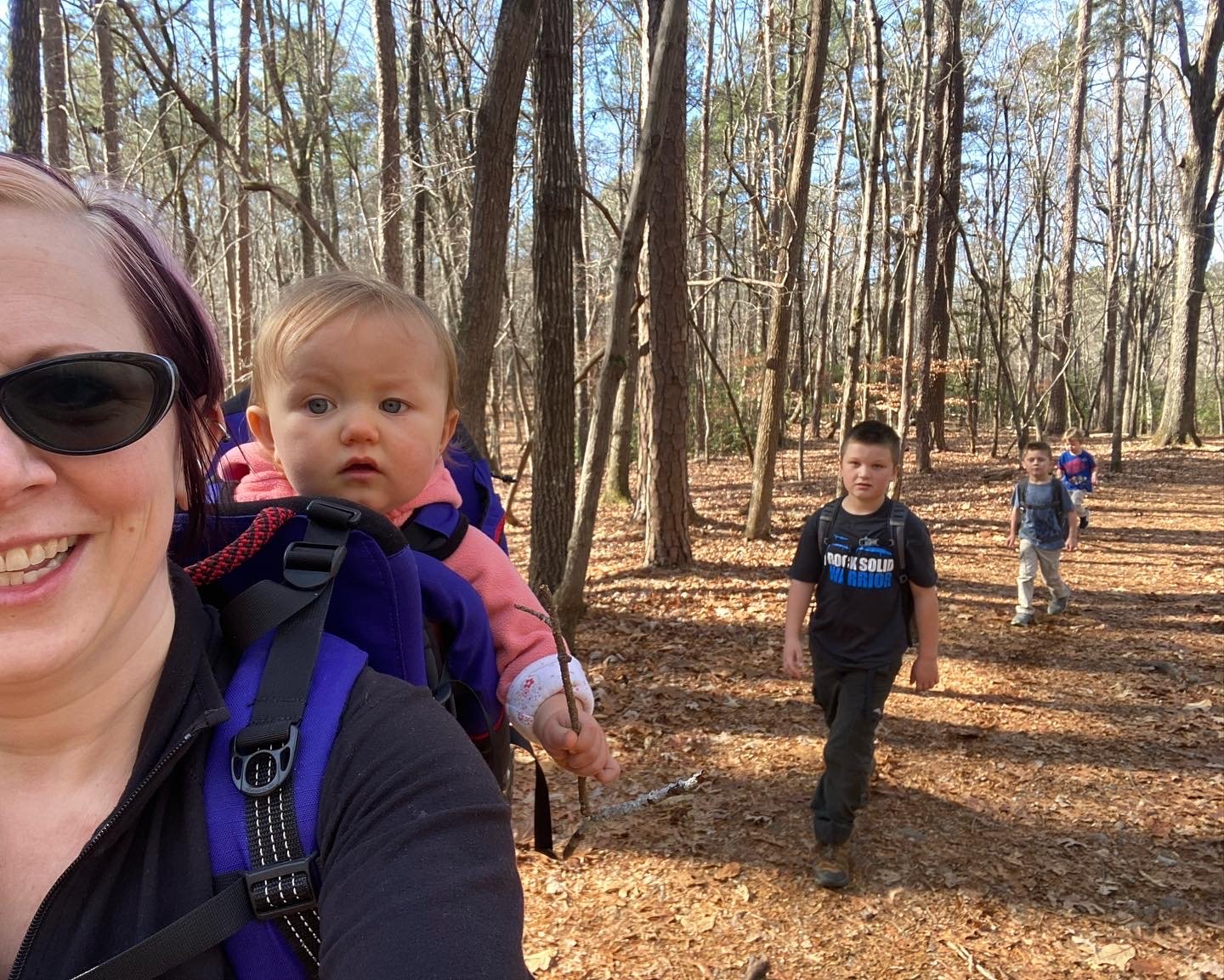
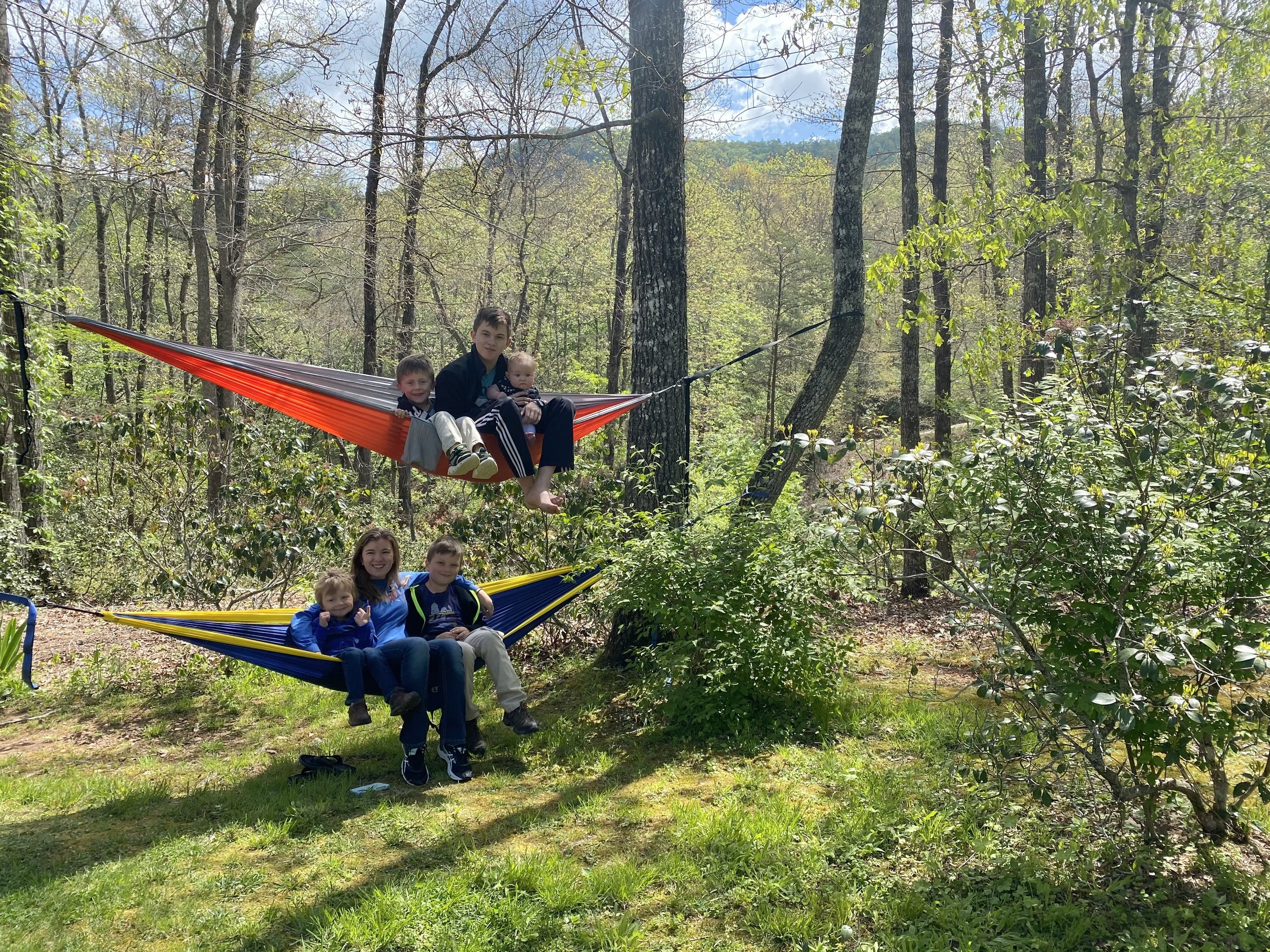
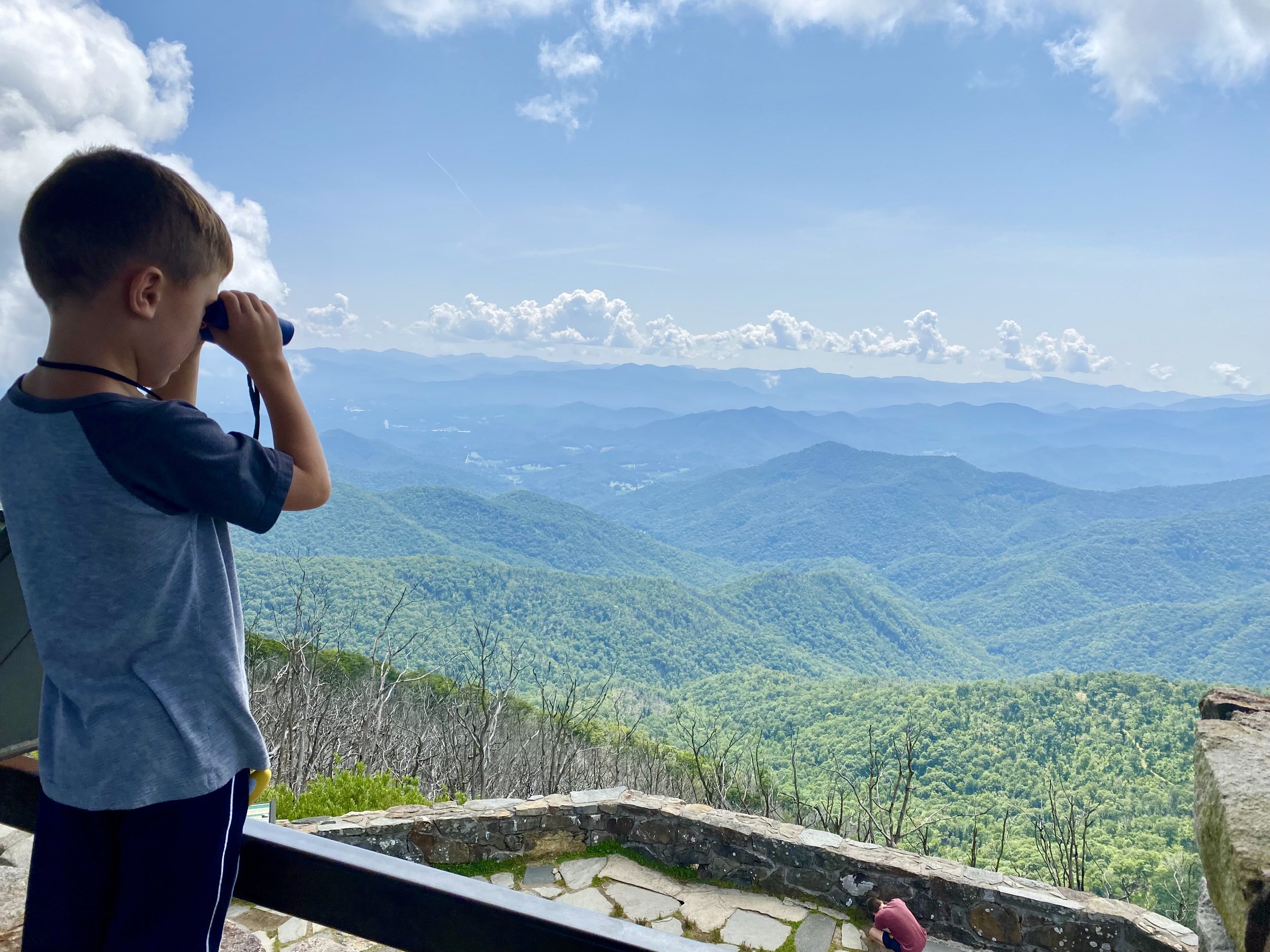
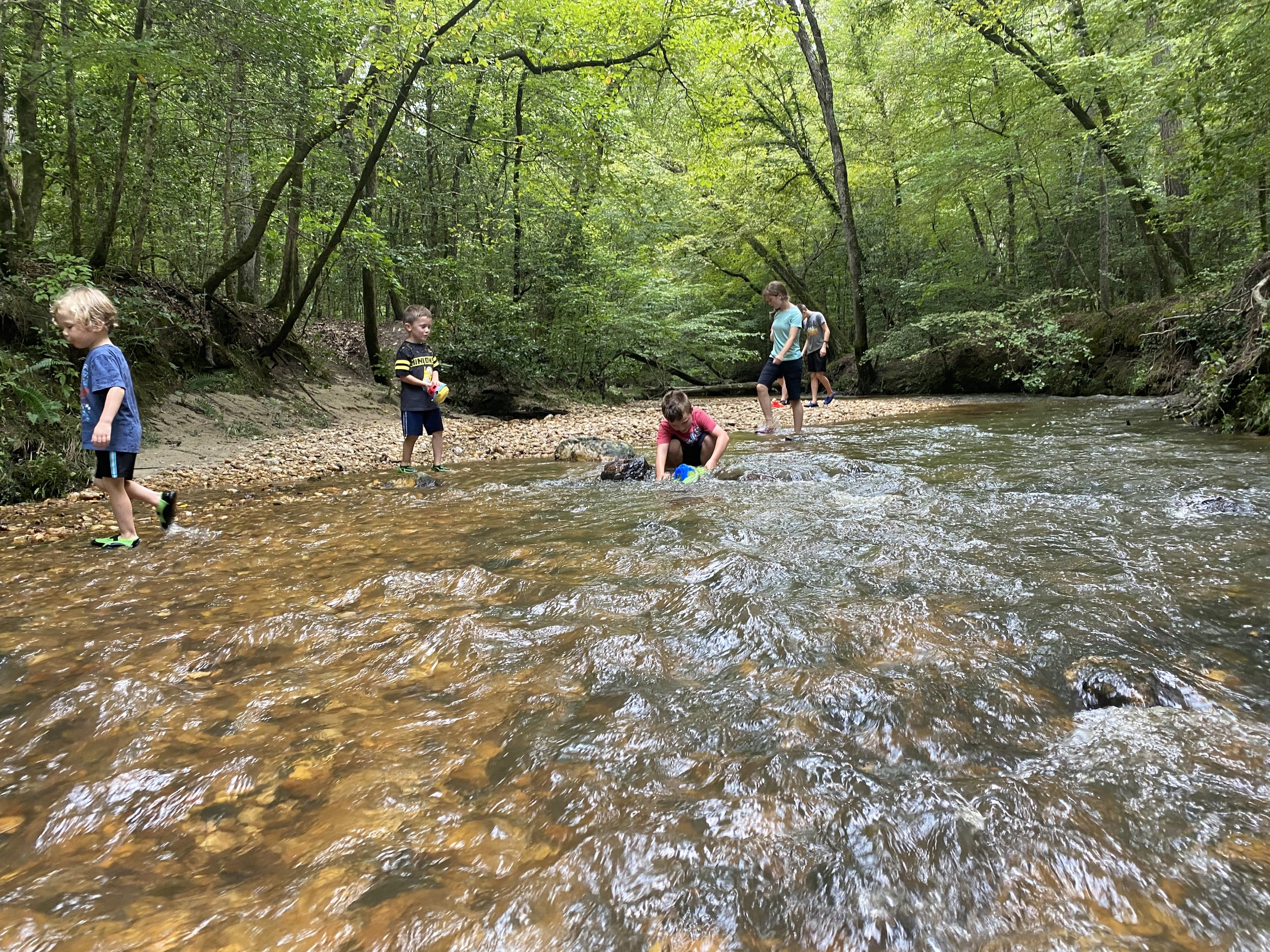

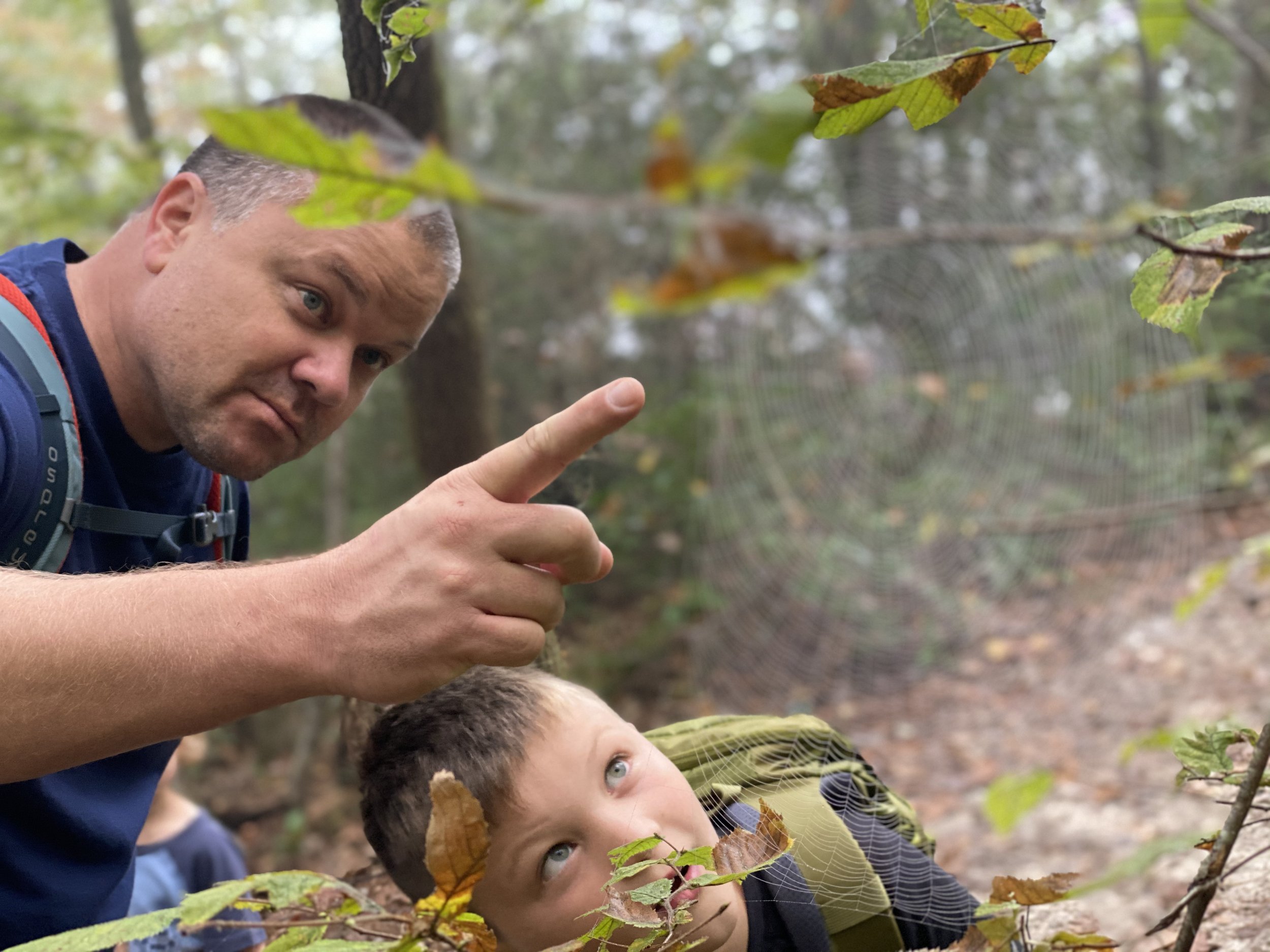
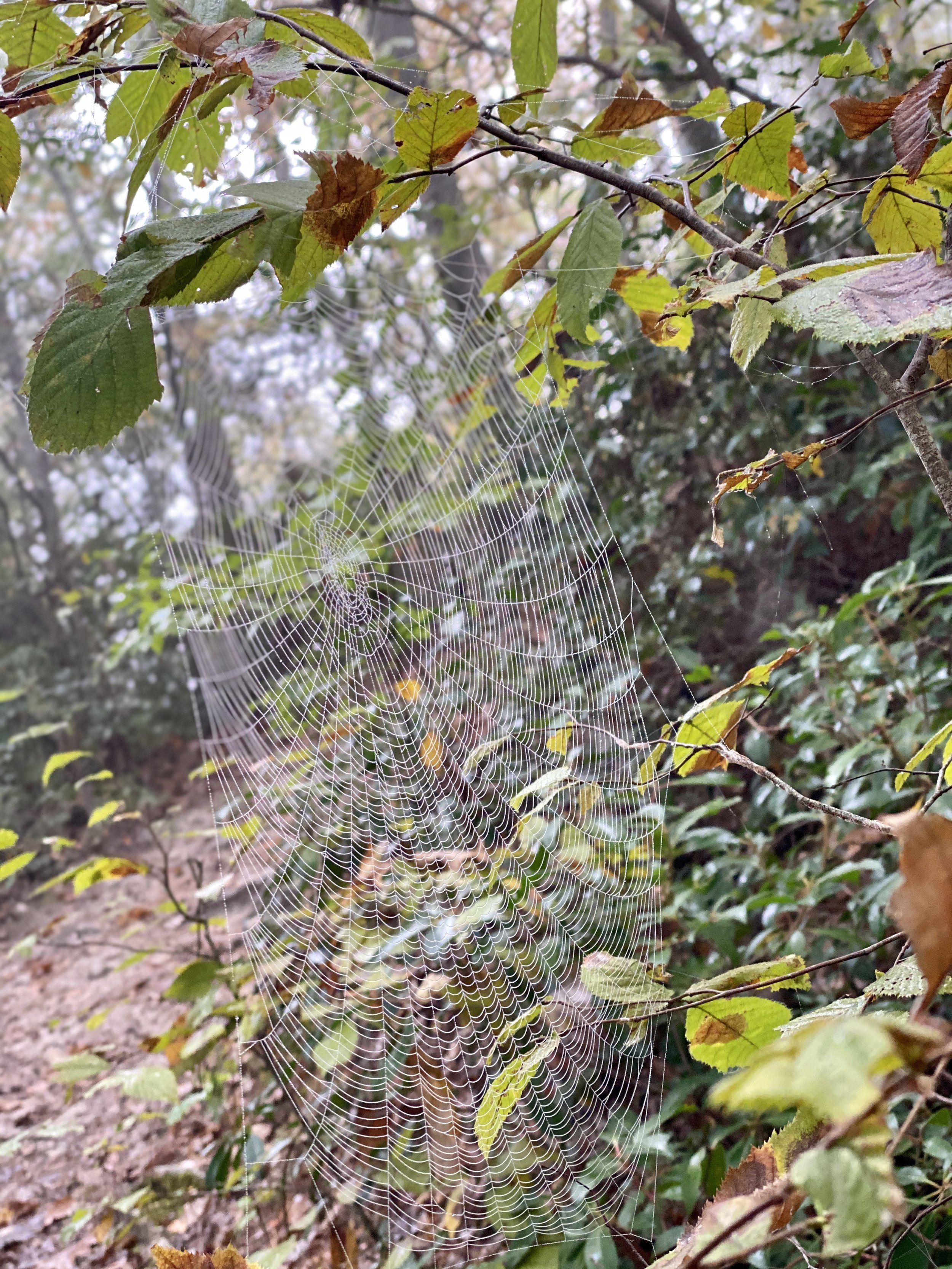




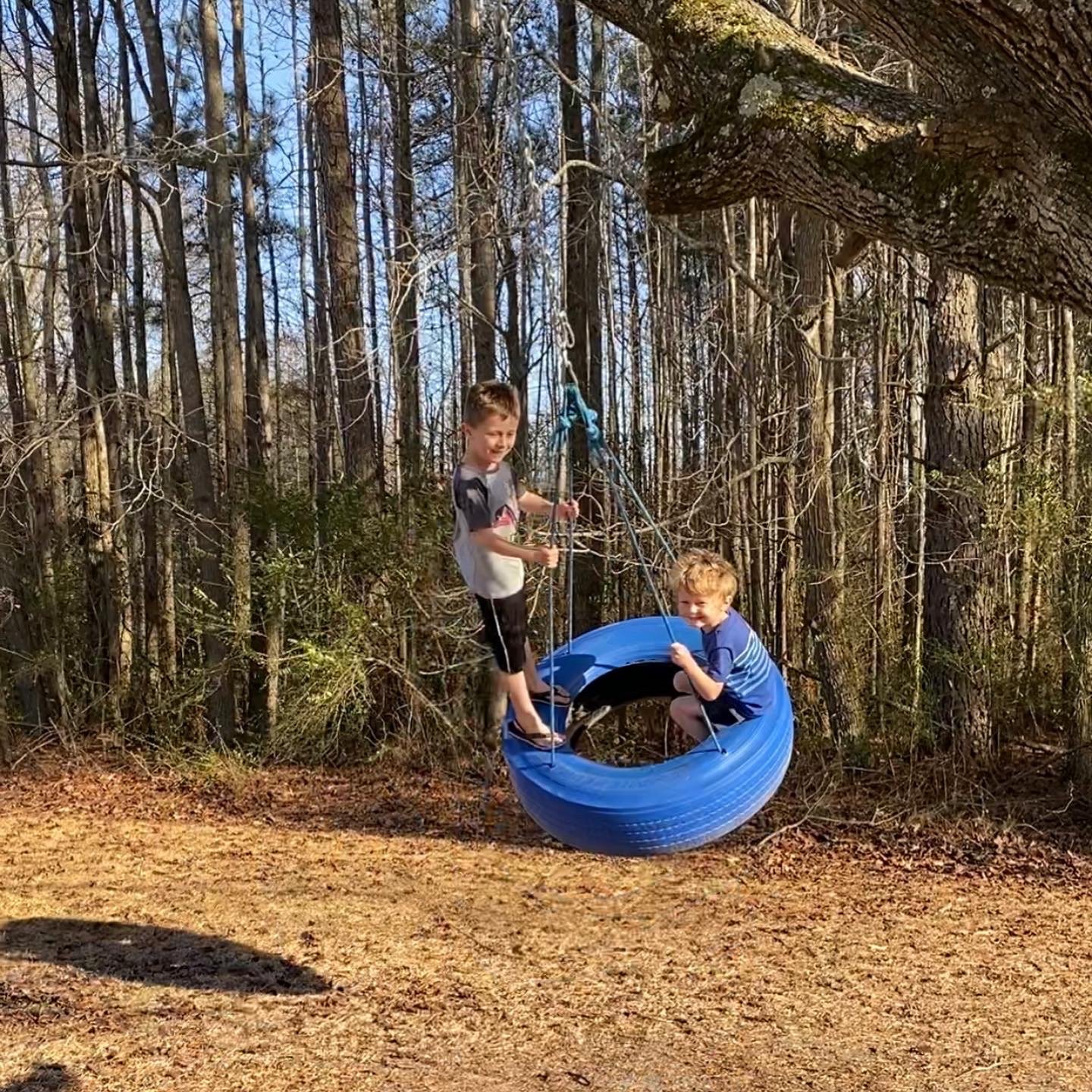
Charlotte Mason Explained
The following notes come from a great book: For the Children’s Sake: Foundations of Education for Home and School by Susan Schaeffer Macaulay.
This book is a must read and has wonderful points about education and using the Charlotte Mason method.
Charlotte Mason turned her attention to the parents. Each child was placed by God under the love, care, and responsibility of the parents. Home is the basic educational environment. But parents too often say they don’t have time to talk/paint/play/hike with their children. But why? What is so important? The sacred career? It should not be so. Educational institutions make poor substitute mothers, fathers, and homes. There has never been a generation when children have so desperately needed their parents’ time, creativity, and friendship. The surrounding culture is deeply out of step with the Word of God. But we are humans. Individual people. Created to live. To have life more abundantly! Wonder together, grow together. Share together the struggles of knowing we can’t perfectly follow God’s law. And this is why the home environment is so important.
Parents are stressed trying to keep up with careers. Schools are too mechanical and have become a place where the child himself doesn’t really count. As Christians, this should be alarming. It goes against everything we believe. These image-bearer little souls have worth. Their own minds. Imaginations that should be stimulated through play, and books, and outdoor adventures. But instead, TV has become a sedative and planned activities crowd out personal growth and creativity. The experience of beauty in God’s great outdoors is often exchanged for seeing flickering images on a screen. We compete with the entertainment of TV. Children spend more time in front of a TV than they do anything else. Their minds unfed, imaginations unused, bodies unexercised, thoughts unexpressed or heard.
Charlotte Mason rejected the utilitarian view of education and the conventional educational standards of her day. She challenges us instead to identify the child’s actual needs and capacities; to serve him as he is, on the basis of what is right and good for him as a person. Education should qualify children for life rather than for simply earning a living.
Another wonderful element about Charlotte was how she delighted in introducing children to all aspects of reality, with a positive joy, and she delighted in their separate individuality. Material was presented to them in a straightforward manner. The was no dumbed down little kid twaddle. They listened to engaging stories and had no need to be told how or what to think at the end. When we dumb down stories and information, we reduce its breadth and interest by telling the children what they should think and how they should feel. There is then no opportunity for them to think for themselves. They are deprived of the chance to wonder at a story and make their own personal response… deprived of the right to think. This devalues the personhood of the child.
One of the major dangers with modern education is that children’s play is crowded out. We must consider their need to play. It should be a priority. Children need time to be imaginative. To invent things, carry on adventures, etc. Child’s play should have a quality of spontaneity, imagination, wholehearted concentration, and joy. But instead, school hours are like a monster gobbling up the child’s treasure of time. It is important to keep a check on how much of the child’s time is being “organized.” Children need to be free to organize a majority of their own time. This is necessary for healthy development. Children need to be outdoors for hours. Make noise, messes, have access to raw materials, and even have privacy from intruding adults (within reason).
We should study our children, who they are, and serve who they are…. Not fit them into our schedules or plans. Children are hungry. They have an appetite for knowing and experiencing. The real world is of interest and it is where the unexpected can happen. It is full of wonderful mystery.
One of the most monstrous defects in education today is that children fail to acquire the habit of reading…. using books as a means of interest and delight. Children benefit greatly from working through a well-chosen book. When they tackle an entire book, they are acquainted with its flow and use of language. They can notice the content for themselves. They aren’t forced to memorize facts, instead they are free to react to the writing themselves. It is an active experience of the mind, personality, and language. Through this method, Charlotte Mason respected the child’s ability to find the meaning and express himself, without a middleman.


